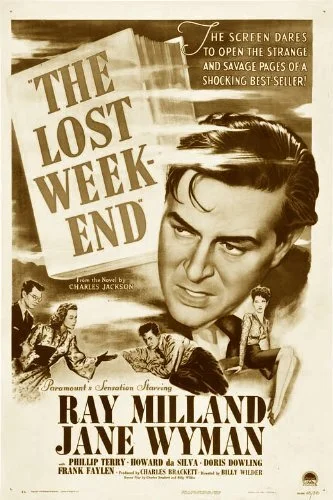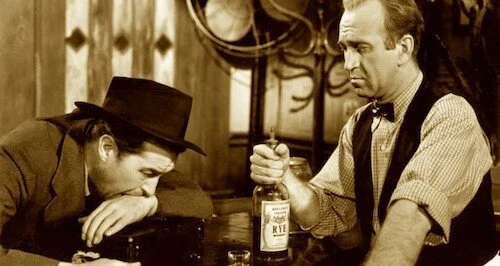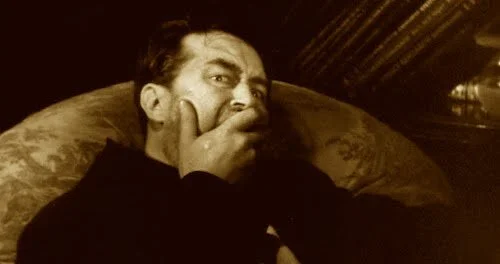The Lost Weekend
This review is a part of the Best Picture Project: a review of every single Academy Award winner for the Best Picture category. The Lost Weekend is the eighteenth Best Picture winner at the 1945 Academy Awards.
After the super weak Going My Way year, the Academy seemed to lean towards prestige once more. 1946 is the first year that the Oscars gave a Best Picture win to a film that received the Grand Prix at the Cannes Film Festival (which would only happen once again, with Marty). The Lost Weekend is not a particularly artsy film, but it holds enough imaginative content to feel of a different caliber. Let's also be honest. Billy Wilder is a brilliant enough director that The Lost Weekend is far from his greatest film, but it's one that I like to bring up every now and then. In this particular experiment, this is the perfect time (especially if you are reading this on the day of release, and need a sporadic Halloween flick).
Ray Milland stars as Don: a writer that is working on his next assignment, until his alcoholism gets in the way. That's basically the entire premise, and that's all it needs to be. To truly feel like a "lost" weekend, one has to feel stripped of meaning, direction and identity. With the plot being completely reliant on Don needing to get it together, the entire film slips, exactly as it is supposed to. There are many great films that tackle substance abuse, but The Lost Weekend is a strong example, because you feel affected too.
You're stuck in a pit of despair for a majority of the film, seeing Don make poor decision after poor decision. You cannot help but feel agitated, depressed, and pessimistic. Then, the freak out happens: the signature climax that no one is ever quite prepared for. Before any of you naysayers want to declare that it seems unrealistic, perhaps looking up what cinematic symbolism is. I haven't heard many people complain about this scene, though. I usually don't hear anyone say anything at all. The common reaction is one of confusion and speechlessness.
Don on the brink of despair, feeling controlled by his need for alcohol.
In 1945, that had to have been an insane moment to gaze upon. Regardless of what the sequence is trying to achieve, the execution is fantastic (a teensy bit dated, but not obnoxiously). It's the revelation of a bottomless pit: that anything can actually get worse, and that you can't reach rock bottom before vowing to change. It's a brief stint with the absence of time, space, and reality. It's the kind of mindlessness that one fears the most when they allow their vice to take a hold (even if the result comes from the withdrawal).
This descent is all thanks to Milland's powerhouse leading performance. The rest of the cast is solid as well, as their concerns sell Don's illness. Yet, we needed Milland to lead is. Consider that this was in the middle of the '40s, for crying out loud. Does The Lost Weekend succumb to Hayes code regulations? Kind of, including the very ending (which I have to keep in mind, because it sticks out like a sore thumb). Remembering all of this, The Lost Weekend is relentlessly grim for a good majority of its runtime. The ending was the only way this film was going to be made during this time, so who cares?
Don during the horrifying climax.
It's great to see Wilder work dark, especially when many of his classics are comedies. If Double Indemnity wasn't going to win, we have great runner up in The Lost Weekend. It's sickness, guilt, struggle and self sabotage personified. All art forms have tried to document the downward spiral; it's hardly a new notion. With this film, you get an above-satisfactory take at that goal. With surroundings turning into psychedelic panic, you know Wilder and company successfully arrived at where they wanted to be. Yet another Best Picture winner that doesn't get talked about enough today, The Lost Weekend is a daring enough mainstream work during a time when Hollywood was only getting softer.
Also, isn’t it nice that something this out-of-left-field stopped The Bells of St. Mary’s from pulling a Going My Way part II? It warms my critical heart.
Andreas Babiolakis has a Masters degree in Film and Photography Preservation and Collections management from Ryerson University, as well as a Bachelors degree in Cinema Studies from York University. His favourite times of year are the Criterion Collection flash sales and the annual Toronto International Film Festival.







